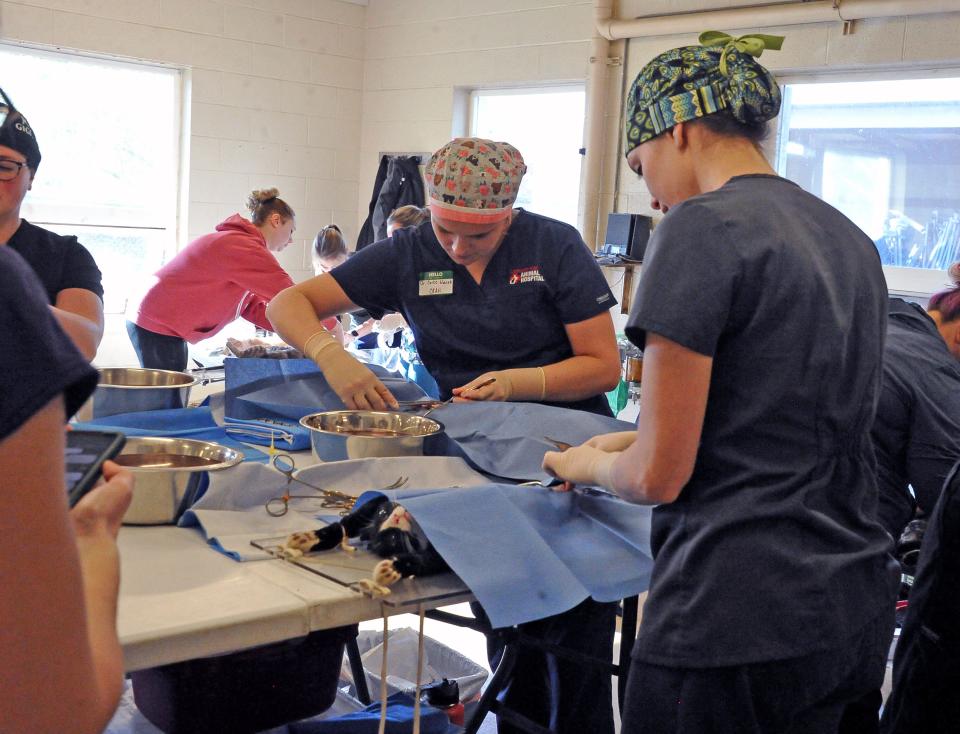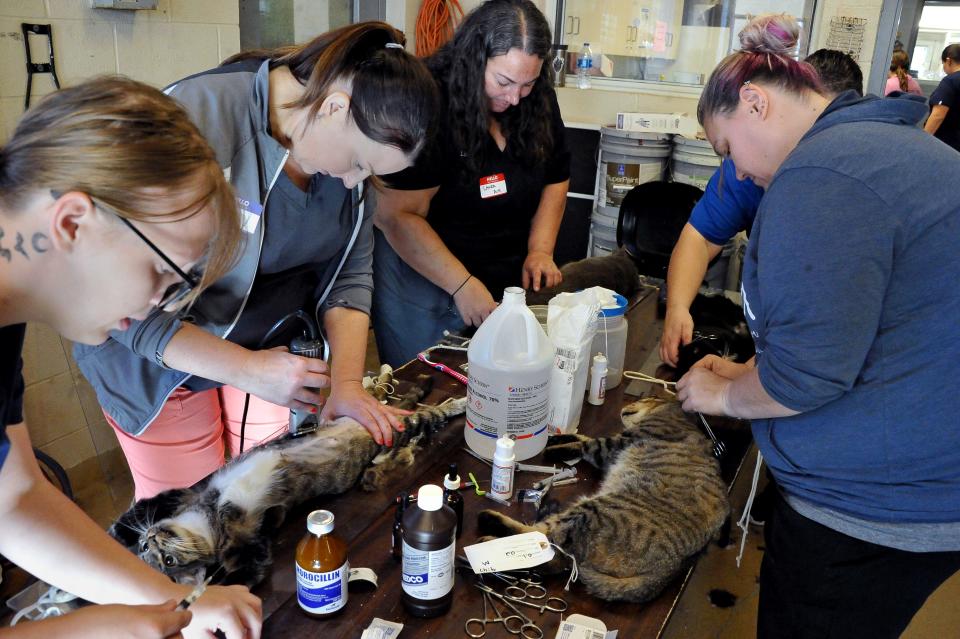Wayne County Humane Society offers TNR event to reduce feral cat population
Wayne County Humane Society offered a free TNR (trap-neuter-return) for feral community cats in Wooster and Orrville areas Sunday.
The action came as a response to help the communities with the increasing numbers of feral cats in their neighborhoods.
“Wayne County has an overpopulation of community cats," said Board President Mike Bomboris. "We found that spaying and neutering is the most effective way to control and prevent unwanted litters,”
The WCHS required citizens to trap and drop off feral cats in Humane Society traps on Saturday, Oct. 14, at their facility in Wooster. “They have to be fasting overnight in order to go into the surgery. We make sure they don’t have any food and that their stomach is empty while they go into anesthesia,” said Executive Director Lisa Elder.

The spay/neuter process
The next day at 7:30 a.m., 100 feral cats were getting ready for their spaying or neutering surgery. About 11 veterinarians, 12 vet technicians, and four WCHS staff members volunteered for this event.
In the preparation room, a volunteer member checked the cats’ weight and health, then used a TNR fork to contain the cat and give it a shot before the procedure.
The cats are then moved to the surgery room where they lay on a table to have their ears tipped (clipping the top of an ear) and shaved around the area of the surgery.
Ear tipping is done in order to identify TNR cats easily, even from a distance.
The action takes place on three tables prepared for the surgery with 4 to 5 vets ready to perform the spaying or neutering.
“Males take approximately 5 minutes and females can take around 10 minutes,” Elder said.

Dr. Laurel Harrison, a board member and a veterinarian at Cleveland Road Animal Hospital in Wooster, said space is challenging for them.
“We have many people who want to participate. We hope for a bigger facility to be able to do this better, but so far we have done a great job,” Harrison said.
After the surgery, cats are taken into a warm room to recover and get a final checkup before the citizens pick them up the next day and release them back where they picked up.
Why feral cats are should be spayed or neutered
Cats can get pregnant as young as four months. In the span of summer, a cat can have approximately three litters with four to five kittens each. The kittens can’t be kept as pets because they are not used to human interaction. Also, they can’t be displaced to another area after being spayed or neutered.
Displacing TNR feral cats from their area can be dangerous. The resources in their original area such as food and shelter will attract other non-TNR feral cats. Once they form a colony, they will reproduce and cause destruction in the neighborhood by urinating and upending trash cans.
However, when TNR feral cats are released back in their territories it will prevent reproducing as well as the destructive behavior. In addition, the TNR feral cats do not allow new cats in the area, Elder explained.
Other services offered by WCHS
“We have been planning this for three months. We want to make an impact in our communities, and this is just a small step,” Bomboris said.
WCHS offers a transport clinic with low-cost spaying and neutering for cats and dogs. The transportation clinic transfers animals to have the surgery at Alter Clinic Animal Care in Canton and returns them back to Wooster the same day to be picked up by their owners.
The coming days for the events are: Nov. 1, Nov. 29, and Dec. 27 the application form and registration are available on the WCHS website.
This article originally appeared on The Daily Record: Humane Society offers neutering event to reduce feral cat problem
